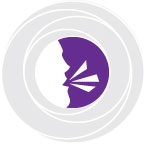 The Language-Learning Program (LLP) provides assessment and treatment for school-age children, adolescents, and adults who are experiencing difficulty with various aspects of communication, particularly reading, writing, and spelling.
The Language-Learning Program (LLP) provides assessment and treatment for school-age children, adolescents, and adults who are experiencing difficulty with various aspects of communication, particularly reading, writing, and spelling.
What are language-based learning difficulties?
Individuals who experience difficulty with oral expression, listening comprehension, vocabulary usage, figurative language, conversational skills, reading, reading comprehension, written expression, or spelling may be experiencing language-based learning difficulties.
When is a child considered to be at risk for developing learning difficulties?
 Children who experience speech or language problems or who have a family history of speech, language or learning difficulties are at risk for having learning difficulties.
Children who experience speech or language problems or who have a family history of speech, language or learning difficulties are at risk for having learning difficulties.
Assessment and Diagnosis
The nature and extent of any learning difficulties must be clearly established before appropriate treatment or intervention can be provided. At the LLP, extensive language testing will be completed prior to beginning interventions. Testing includes areas such as:
- Basic language skills
- Listening comprehension
- Reading
- Writing
- Spelling
The testing may also result in referrals to other professionals for additional testing.
In some cases, appropriate language testing may have already been completed. Copies of test results will be reviewed to determine whether any additional or updated testing may be necessary.
Requirements for Testing
A copy of recent psychoeducational testing results must be provided. It is also helpful to have copies of any other previous testing, IEPs, end-of-grade test results, and any academic work which may be representative of individual strengths or needs.
Purpose
The Language Learning Program for School Age Children, Adolescents, and Adults (LLP) provides assessment and treatment for individuals who have language-based learning difficulties. This includes children who are at risk for developing learning disabilities as they progress through school.
Intervention
The LLP utilizes a variety of treatment approaches and techniques. Services are provided based upon individual needs. Most sessions are held twice weekly for 50 minutes. Some individuals are able to attend more frequently or for longer periods of time.
Most sessions are conducted on a one-to-one basis. Occasionally, writing workshops are offered in a small group setting with the student-teacher ratio remaining one-to-one.
Interventions are provided by graduate student clinicians under the direct supervision of speech-language pathologists who are state-licensed and nationally certified by the American Speech-Language-Hearing Association. LLP supervisors specialize in the diagnosis and treatment of language-based learning difficulties. In the LLP, one hundred percent supervision is routinely provided for both diagnostic and therapeutic sessions.